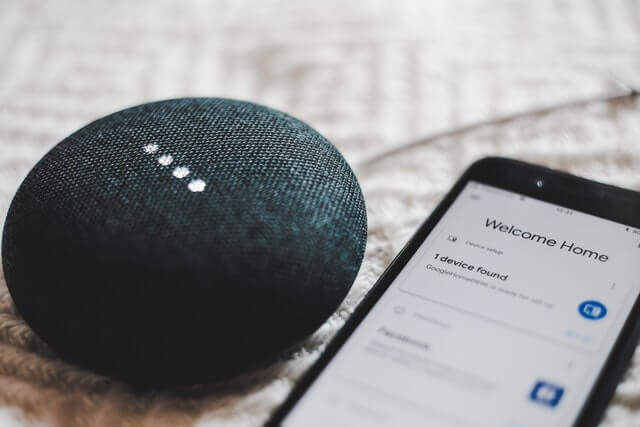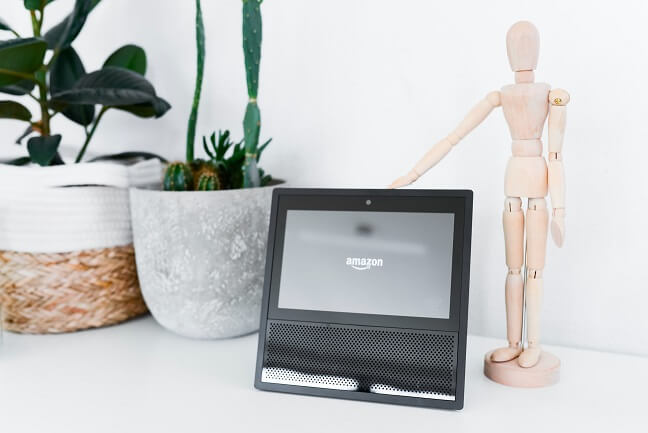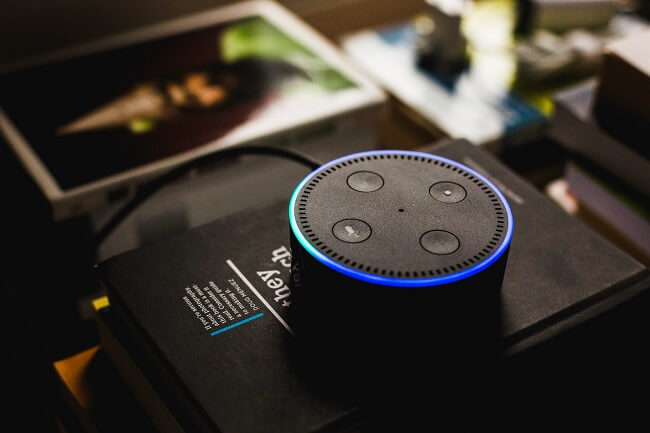Over the past few years, the rise of voice assisted technology and smart speaker usage in the home has grown at an incredible rate. Recent figures show that over 43 million Americans own a smart speaker in their home and interact with it on a regular basis. The reason for this is the litany of different uses and tasks that they can now accomplish. No matter if it’s a Google Home Device, an Amazon Alexa or any number of the other brands currently manufacturing devices, it raises some important questions, namely, what are their benefits? And, more importantly, are smart speakers safe?
As the figures show, users are incorporating smart speakers into their daily lives with great regularity. 86% of people use them to listen to music, 72% use them to obtain information about the weather and just under half use them to control the appliances in their home. With many people now able to access information, multitask and save time every day, voice-enabled smart devices are a trend that is only set to keep on growing with each coming year.
However, these devices do come with some inherent problems, most of which surround user privacy, so having a handy guide to the security of voice-activated smart speakers is key to ensuring your details and private information stays safe. With more people working from home at the present time due to the Coronavirus pandemic, understanding the complete guide to voice technology and how it can be listening to you even when you aren’t interacting with it, is more important than ever before. So let’s take a look at everything you need to know as it relates to smart speakers and privacy.
How Smart Speakers Work and Their Benefits

Essentially, smart speakers, such as the Amazon Alexa or the Google Home, operate as a virtual assistant that can be instructed to perform tasks from just using voice commands. For example, you can ask your smart speaker questions revolving around the weather that day, the time, when your next meeting is or any other piece of information you need. The device will then find an answer quickly from the internet and reply to you in a relatively conversational tone.
However, given recent technological advancements, the potential and abilities of smart speakers has increased dramatically. You can now buy products through them using just your voice, set up rolling orders for things like food deliveries and book tickets for trains or planes all without having to physically log onto a laptop or manually enter any of your details yourself. This inherently improved and streamlined nature regarding smart devices and how they can save you time and effort, is one of the main reasons why they have seen such a meteoric rise in ownership in the past few years.
How Popular Smart Home Devices Carry Cybersecurity Risks
Despite their inherent popularity, this growing usage of smart home devices comes with increased risks regarding cybersecurity, voice assistant security and privacy issues with voice recognition in particular. Smart home threats are now wide ranging, increasingly dangerous and present a number of new problems that the majority of people and businesses may be unaware of.

When asked about this issue, 41% of smart device owners said they had concerns surrounding trust, privacy and the passive listening abilities of these devices. Passive listening being where a voice activated device will be listening and recording everything that is going on, even when not engaged by the user. For many people, this feels like an egregious interference into their private lives.
Alongside this, 52% of those surveyed were worried their personal information or data was not secure, while 36% said they didn’t even want their personal information or data to be used at all.
The growing threat of smart home cyber attacks is also something that is becoming a worrying issue for many users. Due to the connected nature of these devices, if an outside user is able to hack into them, they will be able to retrieve huge amounts of customer data such as credit card details, home addresses and swathes of personal information that can be used for criminal activity. All this means that now, more than ever before, smart speaker security is vital in order to protect not just your private life, but your personal information and data as well.
How to Set Up a Smart Speaker for Privacy
With this in mind, understanding how to set up a smart speaker to protect your privacy is something all device owners should be aware of. Not only does it aid with protecting your data but it can make it much harder for cyberattacks to occur. Some of the best approaches to take surrounding these concerns include:
Unplug Your Device: If you’re worried that a device may be listening to work calls or private conversations you’re having, something where personal or confidential information will be being said, unplugging your smart speaker can help combat this.
Delete Recordings: As it relates to most smart speakers and devices, you will be able to view your audio transcripts and delete them. This needs to be enabled in your settings first but once done you can choose to delete recordings immediately or have everything automatically deleted every few months to protect your privacy.
Enable PIN Protection: This should be something you do as standard to protect your information, whether you have a smart device or not. Having PIN protection makes it harder for external users to access your connected devices and view your personal information.
Turn Off The Microphone: When you aren’t using your device, you should mute it. This will get your machine to stop listening for commands and therefore stop it listening to private conversations. Only, remember to turn it back on when you want to use it for something specific.
Turn Off Personal Results: You may use your voice assistant to help you pay bills or manage personal information that involves passwords or account numbers. One way to prevent this information being easily accessed is to simply turn it off in the device settings.
Final Thoughts
Voice-enabled smart devices are becoming an integral part of the modern home for most people. The ability to control aspects of your life or home using just your voice is extremely desirable for many. This has led to new ways that people interact within the comfort of their own home, how companies utilize consumer data but also how businesses are able to market to an engaged audience.
If you are looking for ways to bring voice assisted marketing into your future campaigns and strategies, or just want to be aware of the latest digital marketing trends, reach out to us here at Aumcore and we will be happy to share our industry expertise.





Tell us your thoughts in the comments